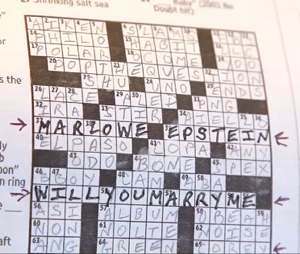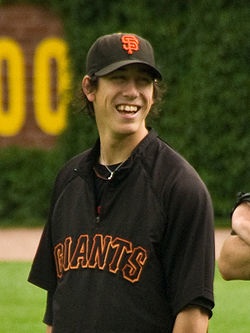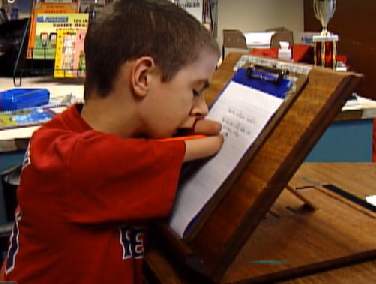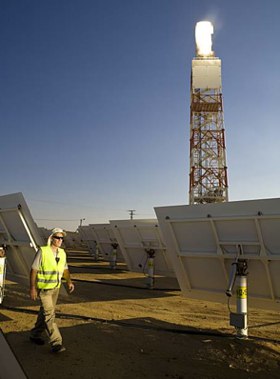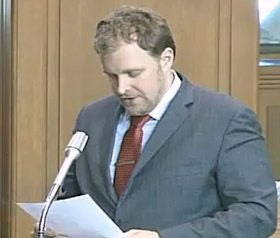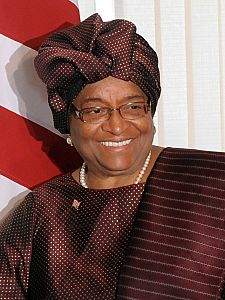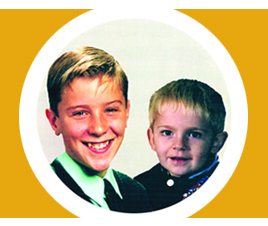 My 12-year-old son Tim was killed on 20 March 1993 by a bomb planted by the Irish Republican Army in Warrington, England. He was shopping for football shorts associated with his favourite English football team, Everton, when the bomb exploded. Tim sustained horrific facial injuries from which he died five days later.
My 12-year-old son Tim was killed on 20 March 1993 by a bomb planted by the Irish Republican Army in Warrington, England. He was shopping for football shorts associated with his favourite English football team, Everton, when the bomb exploded. Tim sustained horrific facial injuries from which he died five days later.
Tim’s death shattered my life and the lives of my wife Wendy, his older brother Dom, then 14 years old, and his younger sister, Abigail, then 11 years old. At the time, our pain and grief was too great to imagine that we could ever harness it to help others.
A few years later, Wendy and I established the Tim Parry Johnathan Ball Foundation for Peace. Initially the foundation was set up to help resolve the conflict between Britain and Ireland by placing victims at the heart of the healing and reconciliation process, and building understanding and friendships between individuals and communities that were divided across sectarian lines.
The Foundation’s first activity was The Tim Parry Scholarship exchange programme, which brought youth from Belfast, Dublin and Warrington together, challenging them to counter their prejudice, intolerance and bigotry which underpinned the conflict. So successful was the programme in changing youths’ attitudes toward one another that we committed ourselves to building a unique Peace Centre where we could expand our programmes beyond the conflict that led to Tim’s death to address other conflicts around the world.
By that time, the terrorist attacks in Britain, arising from the troubles with Northern Ireland, had all but ended when several years later they were replaced by terrorist attacks of a very different kind, evidenced by the devastation in London on 7 July 2005 when suicide bombers detonated bombs in the Underground during morning rush hour, killing 56 people and injuring over 700 more.
In this post-9/11 era, the emphasis of our work shifted dramatically towards interfaith and inter-racial relations in the UK, compelling us to create programmes for victims of all terrorist incidents to become, like us, ”survivors”.
We worked with victims of the 7 July attacks, developed programmes to improve interfaith relations amongst British Muslim and non-Muslim youth, and hosted young Israelis and Palestinians in the Peace Centre. We have demonstrated through our work that dialogue and non-violence encourage understanding and reduce distrust, thereby providing a platform to resolve longstanding problems.
Following the 7 July attacks in London, we were asked to teach the lessons we had learned and the skills we had developed in a high school in South Leeds where interracial and interfaith conflict between students was so serious that the police were on call and on site, daily.
To meet this challenge, we designed and delivered a leadership development programme to three groups of students and asked them to apply the programme, which countered racism and taught alternatives to violence, in their own style in interactions with the other 1,500 students in the school. The results have been remarkable in bridging the school’s interracial and inter-religious divides, and turning it into more of a tolerant, understanding community. This programme’s success has been officially acknowledged as groundbreaking by the British government.
In 2006, we hosted our first mixed Palestinian/Israeli group at the Peace Centre. The atmosphere between the two groups was anything but cordial and was, in fact, hostile. They did not know me, nor did they understand the symbolic importance of the Peace Centre until I addressed them. My message was simple: if my wife and I could do something positive after what we’d been through – losing Tim – so could they! And the message, in its simplicity, profoundly changed their behaviour. They crossed the floor and spoke to one another for the first time.
This is the power of dialogue.
We also developed the Survivors for Peace programme, which brings together victims and perpetrators of politically motivated terror attacks. Amongst those actively engaged in this programme is a victim who was injured when she was on a London bus that was blown apart on 7 July. She fully embraces the spirit and ethos of our work and has worked with British Muslims engaged in the programme.
The death of my son Tim devastated my family but it also propelled us to bring about powerful and positive change – in our lives and in those of others. Tim’s Foundation for Peace has helped thousands of individuals to take proactive, peaceful steps towards solving some of today’s most intractable conflicts.
Colin Parry is Director and Founder of the Tim Parry Johnathan Ball Foundation for Peace.
(Reprinted with permission of Common Ground News Service – CGNews)
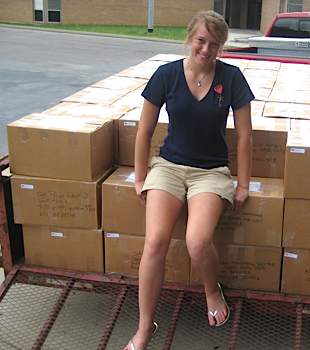 Kaylee is a Tennessee teenager who provides CDs and DVDs to U.S. troops overseas. Her Tunes 4 the Troops organization, begun as a high school project at age 14, just hit a major milestone packing its one millionth disc.
Kaylee is a Tennessee teenager who provides CDs and DVDs to U.S. troops overseas. Her Tunes 4 the Troops organization, begun as a high school project at age 14, just hit a major milestone packing its one millionth disc.



















